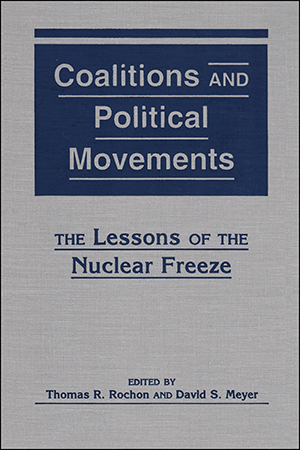
- 1997/278 pages
- Exploring Political Behavior
Coalitions and Political Movements:
The Lessons of the Nuclear Freeze
Hardcover: $25.00
ISBN: 978-1-55587-744-6
How advanced is our knowledge about the dynamics of political and social activism? What lessons can be learned by studying the rise and fall of particular political and social movements? What insights can be gained by applying the different frameworks and methodologies of political science, sociology, and communications? This original work employs multidisciplinary perspectives to better understand the nuclear freeze, a movement that at one time produced a vast national network of activism and the largest political demonstration in the history of the United States.
Incorporating a new, coalitional theory of political and social movements, the authors explore the successes and failures of the freeze campaign in its attempts to influence legislation, treaties, and public opinion about nuclear weapons. They examine freeze activism in the context of the larger peace movement, its continuing relevance for current and future peace mobilizations, and its implications for the general study of political and social change.





